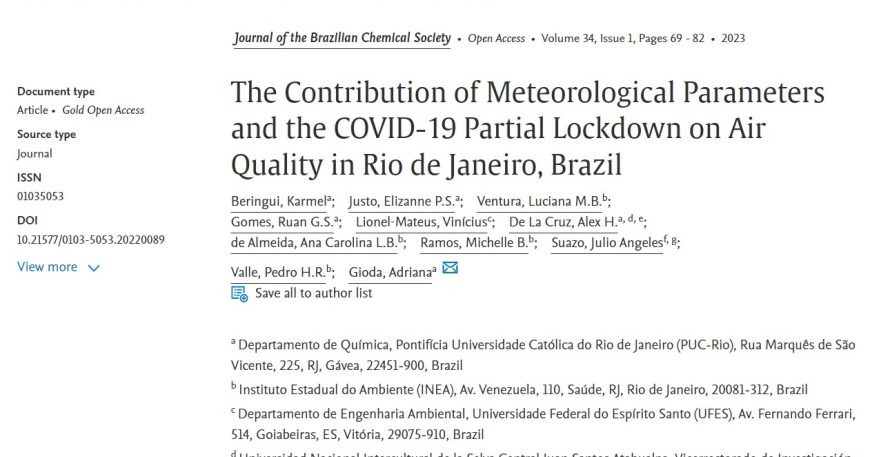Abstract
This study evaluated the pollutant levels (NO2, SO2, CO, and O3), air quality index (AQI) and the influence of meteorological variables and coronavirus disease (COVID-19) pandemic on the air quality in Rio de Janeiro. The data set used comprises periods before (March-April, 2019) and during pandemic (March-April, 2020). According to the AQI results, on most days, the air quality was ranked as “good”. Brazilian air quality standards for SO2, O3, and NO2 were not exceeded in any of the monitoring stations during partial lockdown, while CO exceeded in all periods in one site due to industrial emission. Comparing both periods, descriptive statistics for the meteorological parameters presented no differences, which suggests similar conditions. However, when evaluated week by week in 2020, weather conditions presented some differences that probably affected pollutant concentrations. The correlations between O3 and NO2 and some meteorological parameters indicate that variations in both favored ozone formation, since it is a photochemical process favored by temperature and solar radiation and that, in Rio de Janeiro, low NO2 concentrations lead to increased O3. The improvements on air quality during the partial lockdown may be attributed mainly to a reduction on emission sources rather than weather conditions. ©2023 Sociedade Brasileira de Química.









